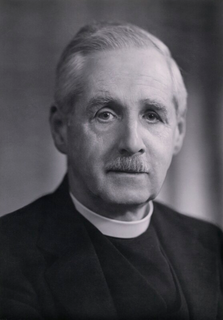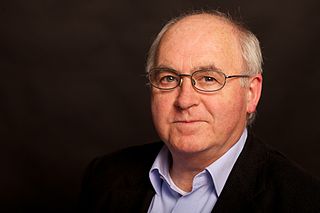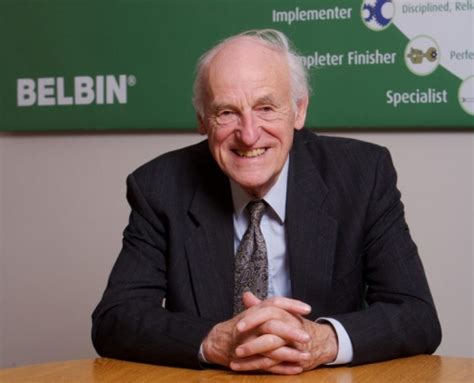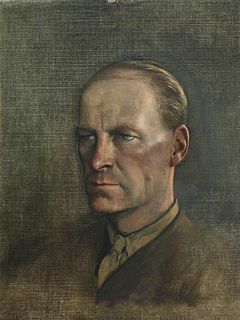Top 1200 Inquisitive Minds Quotes & Sayings - Page 5
Explore popular Inquisitive Minds quotes.
Last updated on April 22, 2025.
Researchers find it very necessary to keep blinkers on. They don't want to admit that the animals they are working with have feelings. They don't want to admit that they might have minds and personalities because that would make it quite difficult for them to do what they do; so we find that within the lab communities there is a very strong resistance among the researchers to admitting that animals have minds, personalities and feelings.
The books I made, most of those books were made in the '80s or early '90s. I was reacting emotionally at that time; it wasn't an intellectual thing. I didn't make those things for public presentation; those were for my friends. So I wasn't doing this to be an advocate for what I'm talking about right about now. But I'm realizing I was working properly as an artist, or whatever you want to call it, as somebody that naturally was inquisitive.
A lot of the strings that hold us like puppets are really inventions of our own minds. I'm not saying that there aren't armies and police and various ways to punish deviants, but there isn't any way to punish a large number of deviants. It's too expensive to even try. So, the solution is to colonize the minds of children as they're growing up, so that they become their own police, and to report on others who are deviating.
Or maybe a person is just made up of a lot of peopleMaybe we’re accumulating these new selves all the time. Hauling them in as we make choices, good and bad, as we screw up, step up, lose our minds, find our minds, fall apart, fall in love, as we grieve, grow, retreat from the world, dive into the world, as we make things, as we break things.
I only ever really follow the music, that's what I'm about, I don't think about it too much. I just wanted to make a piece to sleep through, to sort of explore that sleeping space as a listening space and to have a different encounters between our listening minds or hearing minds and music. I think that's really interesting. After that I feel I've done my job.
I reached the age of 70, because I have cultivated an association of multicultural intellectuals who are informed and alert to whatever "tricknology" that's laid on us by the powers that be. These include White ethnic intellectuals- people who know their roots- as well as Native American, Asian American, Hispanic and Black intellectuals. These are thirty, forty-year associations with some of the best minds around. Minds that are ignored by the media.
You must walk sometimes perfectly free, not prying or inquisitive, not bent on seeing things. Throw away a whole day for a single expansion, a single inspiration of air. You must walk so gently as to hear the finest sounds, the faculties being in repose. Nature will bear the closest inspection. She invites us to lay our eye level with her smallest leaf, and take an insect view of its plain.
God gave us minds to think with and hearts to thank with. Instead we use our hearts to think about the world as we would like it to have been, and we use our minds to come up with rationalizations for our ingratitude. We are a murmuring, discontented, unhappy, ungrateful people. And because we think we want salvation from our discontents.
In ancient times, those who wished to illuminate the world with virtue first brought order to their nations. Wishing to order well their nations, they first harmonized their families. Wishing to harmonize their families, they first cultivated themselves. Wishing to cultivate themselves, they first rectified their minds. Those who wished to rectify their minds first made their intentions sincere.
Adultery is in most cases a theft in the dark. At such moments almost every woman betrays her husband's innermost secrets; becomes a Delilah who discloses to a stranger, discloses to her lover, the mysteries of her husband's strength or weakness. What seems to me treason is, not that women give themselves, but that a woman is prone, when she does so, to justify herself to herself by uncovering her husband's nakedness, exposing it to the inquisitive and scornful gaze of a stranger.
For many of us, the computer is the means by which we earn a living. To give it a nod, then, is a way of thanking the tool for what it provides in life. It helps put bread on the table and a roof overhead. It gives us work and pleasure, exercises our minds, brings us information, connects us with other people. It is a partner helping us achieve our goals. Nodding also thanks the unseen hands and minds who helped create our machine.
I am too inquisitive, too skeptical, too arrogant, to let myself be satisfied with an obvious and crass solution of things. God is such an obvious and crass solution; a solution which is a sheer indelicacy to us thinkers - at bottom He is really nothing but a coarse commandment against us: ye shall not think!
Experience has repeatedly confirmed that well-known maxim of Bacon's that 'a little philosophy inclineth a man's mind to atheism, but depth in philosophy bringeth men's minds about to religion.' At the same time, when Bacon penned that sage epigram... he forgot to add that the God to whom depth in philosophy brings back men's minds is far from being the same from whom a little philosophy estranges them.
Realizing that our minds control our bodies while our bodies reflect our minds amounts to understanding the most fundamental aspects of ourselves. It further equals a comprehension of the relationship between our "tools." And since the mind and body are interrelated, this understanding makes it easier to see why coordinating them is a practical way of using these tools to greatest effect-a way of using the mind and body to live our lives as art.
For centuries, we in the West have thought of ourselves as rational animals whose mental capacities transcend our bodily nature. In this traditional view our minds are abstract, logical, unemotionally rational, consciously accessible, and, above all, able to directly fit and represent the world. Language has a special place in thie view of what a human is - it is a privileged, logical symbol system internal to our minds that transparently expresses abstract concepts that are defined in terms of the external world itself.
We cannot by a little verbal sophistry confound the qualities of different minds, nor force opposite excellences into a union by all the intolerance in the world. If we have a taste for some one precise style or manner, we may keep it to ourselves and let others have theirs. If we are more catholic in our notions, and want variety of excellence and beauty, it is spread abroad for us to profusion in the variety of books and in the several growth of men's minds, fettered by no capricious or arbitrary rules.
Peace does not rest in the charters and covenants alone. It lies in the hearts and minds of all people. So let us not rest all our hopes on parchment and on paper, let us strive to build peace, a desire for peace, a willingness to work for peace in the hearts and minds of all of our people. I believe that we can. I believe the problems of human destiny are not beyond the reach of human beings.
Trusting yourself is realizing yourself. Trusting life is realizing yourself as life. This is an invitation to our thinking minds to open in trust. We can trust that there is a knowing that is out of the realm of thoughts or emotions or circumstances. When we deeply trust, our minds open to discover what is true, regardless of what we are feeling. The deepest trust is a by-product of this true realization.
According to the teaching of our Lord, what is wrong with the world is precisely that it does not believe in God. Yet it is clear that the unbelief which he so bitterly deplored was not an intellectual persuasion of God's non-existence. Those whom he rebuked for their lack of faith were not men who denied God with the top of their minds, but men who, while apparently incapable of doubting him with the top of their minds, lived as though he did not exist.
. . . for until that God who rules all the region of the sky . . . has freed you from the fetters of your body, you cannot gain admission here. Men were created with the understanding that they were to look after that sphere called Earth, which you see in the middle of the temple. Minds have been given to them out of the eternal fires you call fixed stars and planets, those spherical solids which, quickened with divine minds, journey through their circuits and orbits with amazing speed.
The law of love and compassion for all living creatures is again a doctrine to which we are all too ready to pay slip service. However, if it is to become a reality, it requires a process of education, a veritable mental renaissance. Once it has become a reality, national as well as international problems will fall into perspectives and become easier to solve. Wars and conflicts, too, will then become a thing of the past, because wars begin in the minds of men, and in those minds love and compassion would have built the defenses of peace.
I said before, the most beautiful and most profound religious emotion that we can experience is the sensation of the mystical. And this mysticality is the power of all true science. If there is any such concept as a God, it is a subtle spirit, not an image of a man that so many have fixed in their minds. In essence, my religion consists of a humble admiration for this illimitable superior spirit that reveals itself in the slight details that we are able to perceive with our frail and feeble minds.
The earliest instinct of the child, and the ripest experience of age, unite in affirming simplicity to be the truest and profoundest part for man. Likewise this simplicity is so universal and all-containing as a rule for human life, that the subtlest bad man, and the purest good man, as well as the profoundest wise man, do all alike present it on that side which they socially turn to the inquisitive and unscrupulous world.
Our minds are specifically adapted to developing certain theories, and we have a science if the theories that are available to our minds happen to be close to true. Well, there is no particular reason to suppose that the intersection of true theories and theories that are accessible to the mind is very large. It may not be very large.
If you go on a mission to preach the gospel with lightness and frivolity in your hearts, looking for this and that, and to learn what is in the world, and not having your minds riveted - yes, I may say riveted - on the cross of Christ, you will go and return in vain...Let your minds be centered on your missions, and labor earnestly to bring souls to Christ.
Maybe philosophical problems are hard not because they are divine or irreducible or meaningless or workaday science, but because the mind of Homo sapiens lacks the cognitive equipment to solve them. We are organisms, not angels, and our minds are organs, not pipelines to the truth. Our minds evolved by natural selection to solve problems that were life-and-death matters to our ancestors, not to commune with correctness ot to answer any question we are capable of asking.
As piety, religion and morality have a happy influence on the minds of men, in their public as well as private transactions, you will not think it unseasonable, although I have frequently done it, to bring to your remembrance the great importance of encouraging our University, town schools, and other seminaries of education, that our children and youth while they are engaged in the pursuit of useful science, may have their minds impressed with a strong sense of the duties they owe to their God.
There are three means of believing--by inspiration, by reason, and by custom. Christianity, which is the only rational institution, does yet admit none for its sons who do not believe by inspiration. Nor does it injure reason or custom, or debar them of their proper force; on the contrary, it directs us to open our minds by the proofs of the former, and to confirm our minds by the authority of the latter.
The best minds will tell you that when a man has begotten a child he is morally bound to tenderly care for it, protect it from hurt, shield it from disease, clothe it, feed it, bear with its waywardness, lay no hand upon it save in kindness and for its own good, and never in any case inflict upon it a wanton cruelty. God's treatment of his earthly children, every day and every night, is the exact opposite of all that, yet those best minds warmly justify these crimes, condone them, excuse them, and indignantly refuse to regard them as crimes at all, when he commits them.
The trees have inquisitive eyes, haven't they? -that is, seem as if they had. And the river says,-'Why do ye trouble me with your looks?' And you seem to see numbers of to-morrows just all in a line, the first of them the biggest and clearest, the others getting smaller and smaller as they stand further away; but they all seem very fierce and cruel and as if they said, 'I'm coming! Beware of me! Beware of me!
It's also one thing to see a celebrity or some kind of character on a TV show being gay. It's a totally different thing when you know your husband... not your husband, but your brother or your friend or the dude you hung out in high school was gay. I mean, that is what changes people's minds, what changes people's minds.
A paradigm is a powerful theoretical and methodological framework which defines the working lives of thousands of intelligent and disciplined minds. And paradigms do not attract the loyalty of such minds unless they 'work'. One of the first things a graduate student learns is that if there is a discrepancy between the paradigm and what he or she has discovered, then the automatic assumption is that the paradigm is right and the student wrong. Just as a good workman never blames his tools, so the diligent student never blames his paradigm
Some men and women are inquisitive about everything, they are always asking, if they see any one with anything they ask what is that thing, what is it you are carrying, what are you going to be doing with that thing, why have you that thing, where did you get that thing, how long will you have that thing, there are very many men and women who want to know about anything about everything.
At this day . . . the earth sustains on her bosom many monster minds, minds which are not afraid to employ the seed of Deity deposited in human nature as a means of suppressing the name of God. Can anything be more detestable than this madness in man, who, finding God a hundred times both in his body and his soul, makes his excellence in this respect a pretext for denying that there is a God? He will not say that chance has made him different from the brutes; . . . but, substituting Nature as the architect of the universe, he suppresses the name of God.
I will tell you why we have these extraordinary minds and souls, Miss Whittaker," he continued, as though he had not heard her. "We have them because there is a supreme intelligence in the universe, which wishes for communion with us. This supreme intelligence longs to be known. It calls out to us. It draws us close to its mystery, and grants us these remarkable minds, in order that we try to reach for it. It wants us to find it. It wants union with us, more than anything.
A person who undertakes to grow a garden at home, by practices that will preserve rather than exploit the economy of the soil, has his mind precisely against what is wrong with us... What I am saying is that if we apply our minds directly and competently to the needs of the earth, then we will have begun to make fundamental and necessary changes in our minds. We will begin to understand and to mistrust and to change our wasteful economy, which markets not just the produce of earth, but also the earth's ability to produce.
It's hard to try to be a canary in the coal mine in Internet because right now we're enjoying such innovation. But at the same time, we are truly in the midst of a sea change in how controllable the technology we use day by day is, and it is getting more and more controllable by a distinct group of entities, who may have our best interests in mind, at least at consumers right now, but they can change their minds or be regulated, forced to change their minds later.
Every Man being conscious to himself, That he thinks, and that which his Mind is employ'd about whilst thinking, being the Ideas, that are there, 'tis past doubt, that Men have in their Minds several Ideas, such as are those expressed by the words, Whiteness, Hardness, Sweetness, Thinking, Motion, Man, Elephant, Army, Drunkenness, and others: It is in the first place then to be inquired, How he comes by them? I know it is a received Doctrine, That Men have native Ideas, and original Characters stamped upon their Minds, in their very first Being.
Truth may perhaps come to the price of a pearl, that showeth best by day; but it will not rise to the price of a diamond or carbuncle, that showeth best in varied lights. A mixture of a lie doth ever add pleasure. Doth any man doubt that, if there were taken out of men's minds vain opinions, flattering hopes, false valuations, imaginations as one would, and the like, but it would leave the minds of a number of men poor shrunken things, full of melancholy and indisposition, and unpleasing to themselves?
A “collective” mind does not exist. It is merely the sum of endless numbers of individual minds. If we have an endless number of individual minds who are weak, meek, submissive and impotent – who renounce their creative supremacy for the sake of the “whole” and accept humbly that the “whole’s” verdict – we don’t get a collective super-brain. We get only the weak, meek, submissive and impotent collective mind.
Have you thought about what it means to be a god?" asked the man. He had a beard and a baseball cap. "It means you give up your mortal existence to become a meme: something that lives forever in people's minds, like the tune of a nursery rhyme. It means that everyone gets to re-create you in their own minds. You barely have your own identity any more. Instead, you're a thousand aspects of what people need you to be. And everyone wants something different from you. Nothing is fixed, nothing is stable.
Mr Beach was too well bred to be inquisitive, but his eyebrows here not. 'Ah!' he said. '?', cried the eyebrows. '? ? ?' Ashe ignored the eyebrows. ... Mr Beach's eyebrows were still mutely urging him to reveal all, but Ashe directed his gaze at that portion of the room which Mr Beach did not fill. He was hanged if he was going to let himself be hypnotized by a pair of eyebrows into incriminating himself.
The women all had big minds because they were big animals, but they didn't use them for this reason: unusual ideas could make enemies and the women, if they were going to achieve any sort of comfort and safety, needed all the friends they could get. So, in the interest of survival they trained themselves to be agreeing machines. All their minds had to do was to discover what other people were thinking and then they thought it too.
God... has a pencil with an eraser on it and he has promised us that he will use it if we will repent and change our ways…He has said that if we would forsake our evil and thoroughly make up our minds against it, then he would wash it out of his mind and just forget the whole thing. Of course, he expects that we will wash it out of our minds also.
Our lives aren't even about doing real things most of the time. We think and talk about people we've never met, pretend to visit places we've never actually been to, discuss things that are just names as though they were as real as rocks or animals or something. Information Age - Hell it's the Imagination Age. We're living in our own minds. No, she decided as the plane began its steep descent, really we're living in other people's minds.
There are minds constructed like the eyes of certain insects, which discern, with admirable distinctness, the most delicate lineaments and finest veins of the leaf which bears them, but are totally unable to take in the ensemble of the plant or shrub. When error has effected an entrance into such minds, it remains there impregnable, because no general view assists them in throwing off the chance impression of the moment.
You grow most in your areas of greatest strength. You will improve the most, be the
most creative, be the most inquisitive, and bounce back the fastest in those areas
where you have already shown some natural advantage over everyone else your strengths. This doesn't mean you should ignore your weaknesses. It just means
you'll grow most where you're already strong.
Contemporary philosophers have exercised themselves with the problem of our knowledge of other minds. Enmeshed in the dogma of the ghost in the machine, they have found it impossible to discover any logically satisfactory evidence warranting one person in believing that there exist minds other than his own. I can witness what your body does, but I cannot witness what your mind does, and my pretensions to infer from what your body does to what your mind does all collapse, since the premises for such inferences are either inadequate or unknowable.
I've actually always wanted to be able to read people's minds. My sister did a movie with super-powers and that's the one I would have wanted, so I really lucked out. The negative is that people are really cruel in their own minds, but you can weed out the bad people from the good people, and then just hang out with the good people.
The education of youth belongs to the priests, yet they do not take so much care of instructing them in letters, as in forming their minds and manners aright; they use all possible methods to infuse, very early, into the tender and flexible minds of children, such opinions as are both good in themselves and will be useful to their country, for when deep impressions of these things are made at that age, they follow men through the whole course of their lives, and conduce much to preserve the peace of the government, which suffers by nothing more than by vices that rise out of ill opinions.



























































